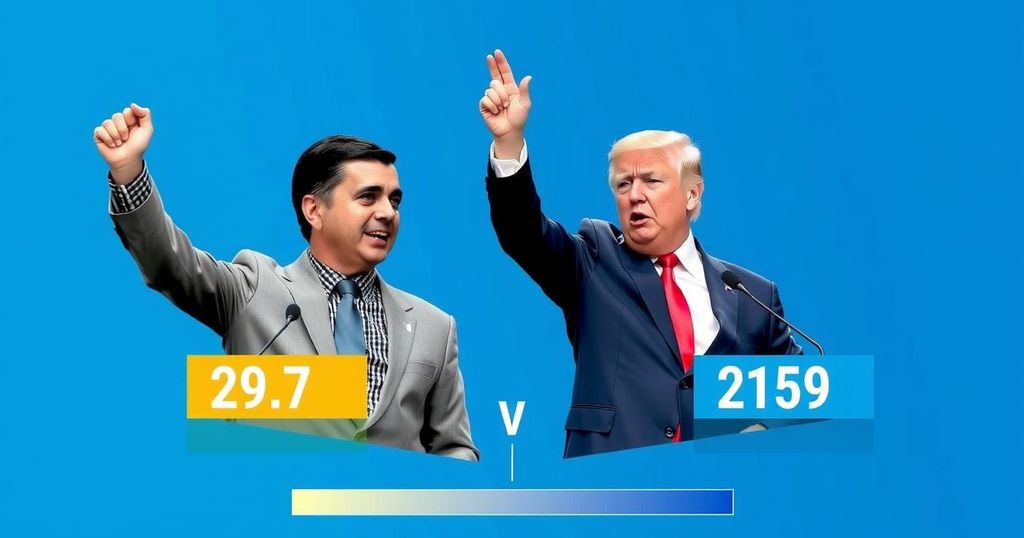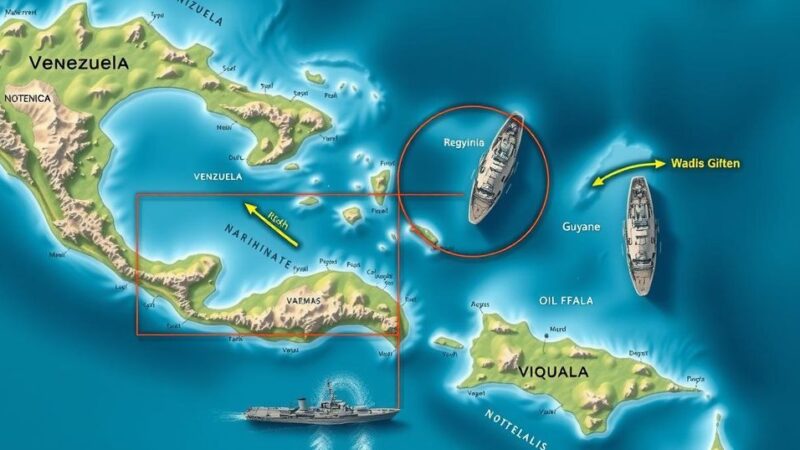Uruguay’s presidential runoff features a competitive race between Yamandú Orsi of the Broad Front and Álvaro Delgado of the National Party. Both candidates are addressing rising crime as a vital issue. Orsi seeks a progressive shift from the past government, while Delgado aims to maintain existing policies. This runoff indicates significant voter engagement and a stable democratic process amid electoral polarization.
In the lead-up to the presidential runoff in Uruguay, the election has evolved from being uneventful to a fiercely contested race. The two candidates, Yamandú Orsi from the Broad Front coalition and Álvaro Delgado of the National Party, are neck and neck as they approach the critical voting day. The first round revealed Orsi’s coalition securing 44% of the vote, whereas Delgado’s party garnered 27%, but a coalition with other conservative parties has bolstered Delgado’s position in this runoff election. Both candidates focus on addressing rising concerns about violent crime while presenting distinctly different visions for the future of the country.
Delgado, 55, embodies continuity with the outgoing government’s policies, promising to continue President Luís Lacalle Pou’s agenda. In contrast, Orsi, 57, aims to present a fresh perspective by advocating for a “new left” and proposing strategies to enhance investment in Uruguay’s vital agricultural sector while also improving social security plans. The election reflects a normal political environment in Uruguay, prioritizing democratic strength amid voter apathy influenced by recent policy discussions and social stability alongside economic growth forecasts.
As Uruguayans prepare for the runoff, the political landscape remains charged yet civil, with both candidates communicating a commitment to stability and progress for the nation.
The Uruguayan presidential election, originally perceived as unremarkable, has transformed into a crucial showdown between candidates from two main political factions. Following President Luís Lacalle Pou’s term, which saw significant social reforms, the current runoff reflects the electorate’s response to these changes and ongoing concerns regarding crime and economic stability. This election is significant not only for its close competition but also for its reflection of the democratic processes in Uruguay, contrasting with more polarized political environments elsewhere.
In conclusion, the upcoming presidential runoff in Uruguay signifies more than a mere electoral exercise; it is a reflection of the current political sentiments and the importance of governance in the face of emerging socio-economic challenges. With candidates Orsi and Delgado presenting divergent paths forward, the electorate’s decision will profoundly influence the direction of Uruguay’s future governance and socio-economic policies.
Original Source: apnews.com






